The Importance of Storytelling in Game Development
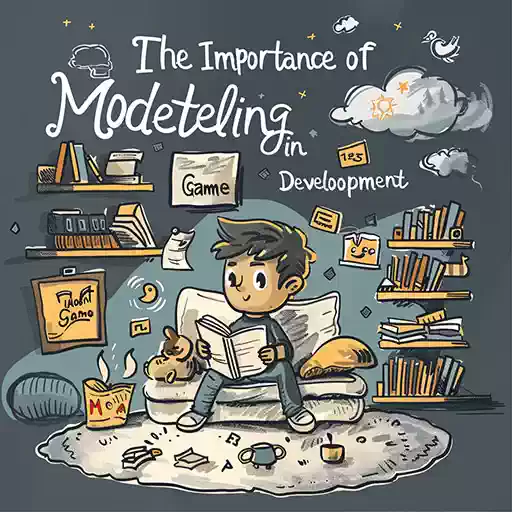
The Role of Storytelling in Game Design
Story as the Emotional Core of the Game
At its core, storytelling in games is about creating emotional connections. Just like in movies or books, a well-crafted narrative can evoke a range of emotions—excitement, tension, sadness, joy, and everything in between. When players feel connected to the characters and the world they're exploring, they become invested in the outcome. This emotional investment is what transforms a game from being just another form of entertainment into something more personal, something that resonates long after the gameplay is over.
Think about the most iconic games of the last few decades—The Legend of Zelda, The Last of Us, Red Dead Redemption. What do they all have in common? Sure, they offer incredible gameplay and visuals, but it's the storytelling that sets them apart. The player isn’t just completing levels or fighting enemies; they’re embarking on a journey, filled with twists, challenges, and meaningful interactions. This is what keeps players coming back for more.
Enhancing Player Engagement Through Narrative
Storytelling doesn’t just make a game more emotionally impactful—it also enhances engagement. When a game has a strong narrative thread, players are more motivated to continue playing. They want to know what happens next, how the plot will unfold, and what fate awaits the characters they've grown attached to. This creates a sense of urgency, driving players to progress through the game not just for the sake of winning, but to experience the next chapter of the story.
This is particularly true for games that blend narrative with choice-based mechanics. Titles like Mass Effect or The Witcher 3 offer branching storylines where the player’s decisions impact the outcome of the narrative. This level of interactivity deepens the player's immersion, making them feel like an integral part of the story rather than a passive observer. The more a game encourages players to engage with the narrative, the more satisfying the overall experience becomes.
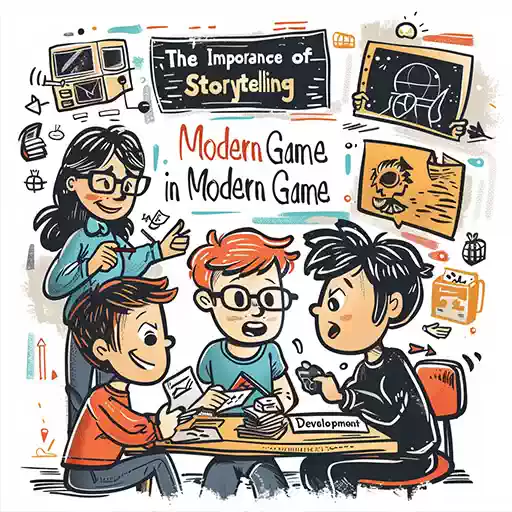
The Different Forms of Storytelling in Modern Games
Linear vs. Non-linear Storytelling
Not all games follow the same narrative structure. Some games opt for a linear narrative, guiding the player through a set storyline with a clear beginning, middle, and end. These games, such as Uncharted or God of War, use traditional storytelling techniques to unfold the plot in a structured manner. This approach allows for tighter control over pacing, ensuring that the player experiences key emotional beats at the right moments.
On the other hand, many modern games are exploring non-linear storytelling. Games like The Elder Scrolls V: Skyrim and Cyberpunk 2077 give players the freedom to explore the world and shape the narrative based on their choices. This can result in multiple possible outcomes, offering replayability and a unique experience for each player. Non-linear storytelling also encourages players to explore the game world at their own pace, discovering hidden stories and side quests that enrich the overall narrative.
Environmental Storytelling: Letting the World Tell the Story
Beyond scripted dialogue and cutscenes, games also use environmental storytelling to immerse players in the narrative. This form of storytelling allows the game's world itself to become a character, filled with details that hint at a larger story. For example, in Bioshock, the decaying Art Deco city of Rapture tells a story of its own—a failed utopia crumbling under the weight of its creators’ ambitions. Every corner, every room, every piece of graffiti on the walls adds to the story, creating a rich, atmospheric backdrop that enhances the player’s experience.
Environmental storytelling is about subtlety. It invites players to pay attention to the details and piece together elements of the plot on their own. It’s a way of showing, not telling, and it can be incredibly effective in deepening immersion. Games that excel at this type of storytelling often encourage exploration, rewarding players who take the time to look beyond the main objectives.
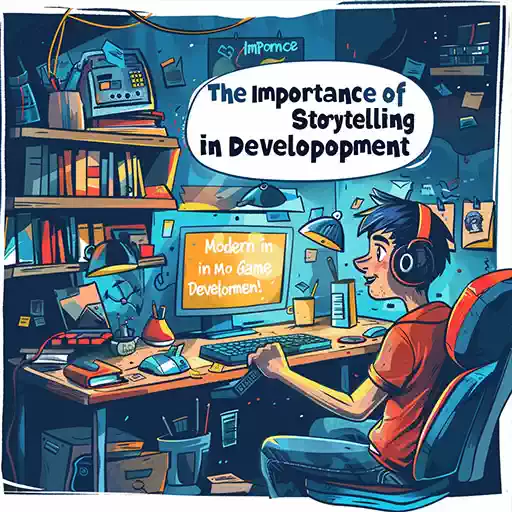
How Storytelling Influences Game Development
Character Development: Bringing Stories to Life
One of the most important aspects of storytelling in games is character development. In many ways, characters are the vehicle through which the story is told. A compelling protagonist with depth, flaws, and growth can elevate a game's narrative and make it truly memorable. Think of characters like Kratos in God of War, or Ellie in The Last of Us. These are characters with rich backstories, motivations, and arcs that players can connect with on an emotional level.
Developing complex characters requires collaboration between writers, animators, and voice actors to ensure that every aspect of the character's design reflects their personality and journey. Whether it’s through dialogue, actions, or even facial expressions, characters bring the story to life, making it feel real and grounded.
Crafting Immersive Worlds
Another key element of storytelling in game development is world-building. For a story to resonate, the world in which it takes place needs to feel cohesive and immersive. This requires attention to detail, from the design of the environments to the history and culture of the game world. Every location, from bustling cities to desolate wastelands, should feel alive, with its own unique lore and atmosphere.
Games like Horizon Zero Dawn or The Witcher 3 transport players to richly detailed worlds filled with history, conflict, and mystery. The more effort developers put into crafting these worlds, the more immersive the experience becomes for players. When done right, the world itself becomes a character in the story, with its own secrets waiting to be uncovered.
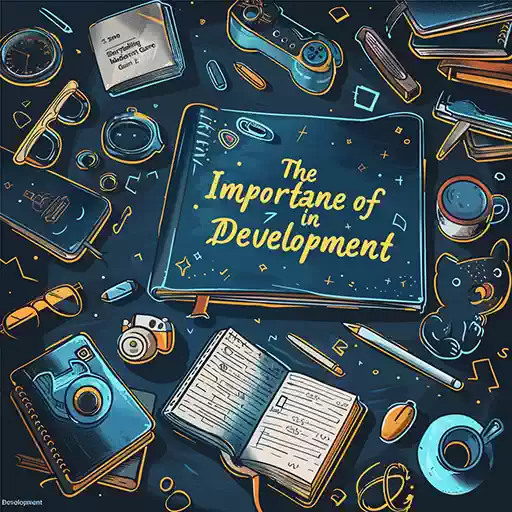
The Future of Storytelling in Games
Expanding Possibilities with AI and Procedural Narratives
As technology continues to advance, the possibilities for storytelling in games are expanding. One of the most exciting developments is the use of AI and procedural narratives. Imagine a game where the story adapts dynamically based on your actions, creating a truly personalized narrative experience. While we’re still in the early stages of this technology, games like No Man’s Sky and Middle-earth: Shadow of Mordor have already begun experimenting with procedural storytelling, offering players a taste of what’s to come.
With AI, developers can create more complex characters that respond in real-time to the player’s actions and decisions. This opens up new possibilities for branching storylines and emergent gameplay, where no two playthroughs are exactly the same.
The Impact of Virtual Reality on Storytelling
Virtual reality (VR) is another area where storytelling in games is poised for evolution. VR games offer an unprecedented level of immersion, allowing players to physically step into the world of the game. This opens up new opportunities for interactive storytelling, where players can engage with the narrative in ways that were previously impossible. Imagine walking through a virtual forest, hearing the whispers of the trees, or physically interacting with characters in a way that feels natural and real.
As VR technology continues to improve, it will undoubtedly play a larger role in the future of game storytelling, offering players an even deeper connection to the stories being told.
Conclusion: Why Storytelling Matters in Games
At the end of the day, storytelling is what gives games their heart. It’s what turns a series of pixels and mechanics into something that feels alive, something that resonates with players on an emotional level. In the world of modern game development, storytelling is more important than ever. Whether it’s through complex characters, immersive worlds, or cutting-edge technology, stories are what keep players coming back, eager to experience the next adventure. At FOGYX, we believe that every great game starts with a great story—and we’re committed to bringing those stories to life, one game at a time.23 September 2024
More articles
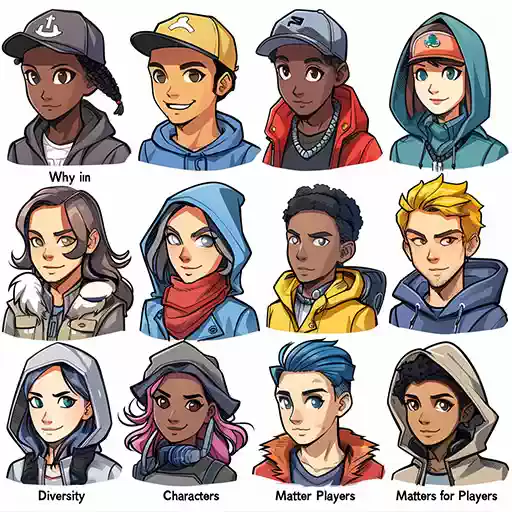
In recent years, the conversation surrounding diversity in gaming has grown louder, more prominent, and more urgent. As the gaming industry continues to expand its reach, the need for greater representation of different races, genders, sexual orientations, and cultural backgrounds in games has become undeniable. The call for diverse game characters isn’t just about inclusion for the sake of being politically correct—it’s about reflecting the real world and fostering deeper connections between players and the stories they engage with.

As gamers, we’ve all been there—right in the middle of an intense battle or the final moments of a difficult quest, only to experience a sudden lag, a drop in frame rate, or an unresponsive control. It’s frustrating, right? But the good news is, no matter what device you’re gaming on—whether it’s a high-end PC, a console, or a mobile phone—there are ways to optimize your performance and ensure a smooth gaming experience.
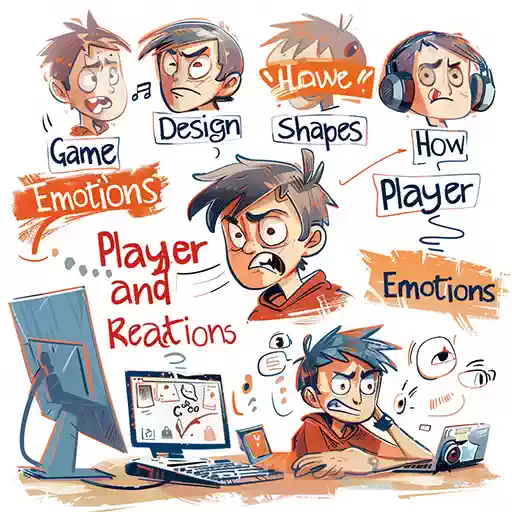
Ever wonder why certain games make your heart race, while others leave you with a deep sense of satisfaction or even sadness? It’s not just the storyline or the gameplay mechanics at work—it’s the game design itself. From the colors and sounds to the pacing and challenges, game design plays a powerful role in shaping the way we feel as we play. The right design elements can take players on an emotional rollercoaster, leaving them exhilarated, frustrated, or deeply moved.
all articles
